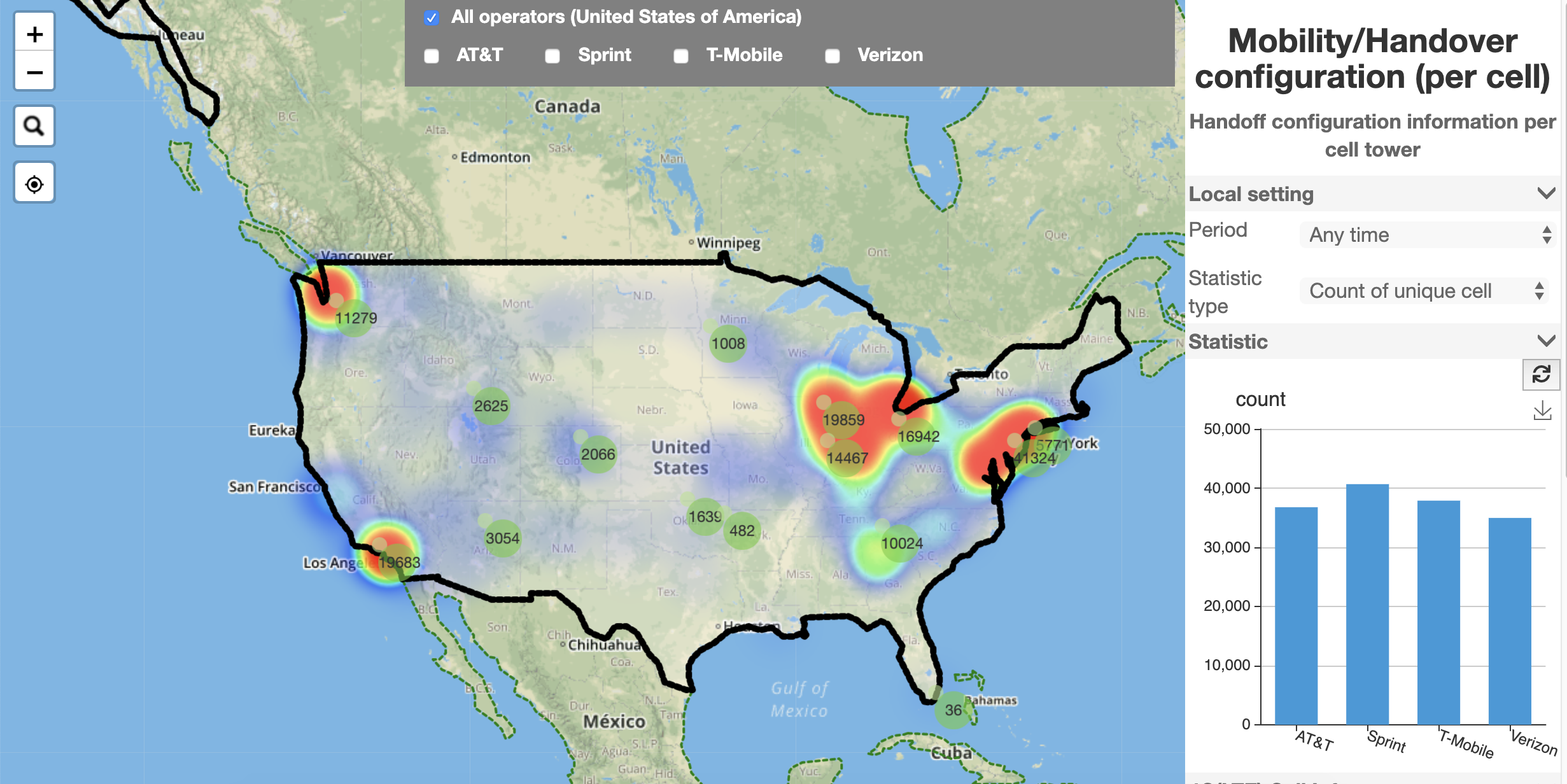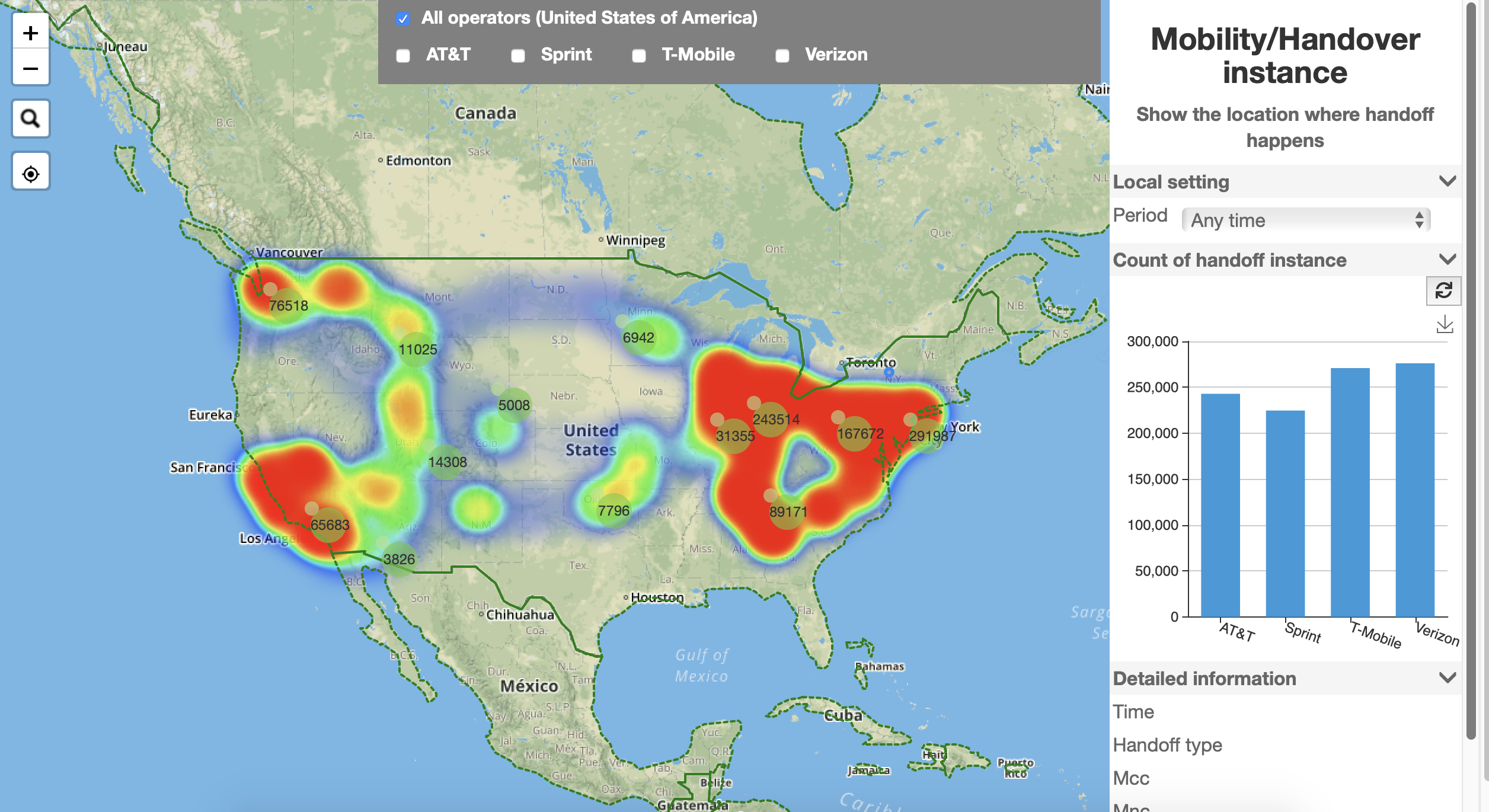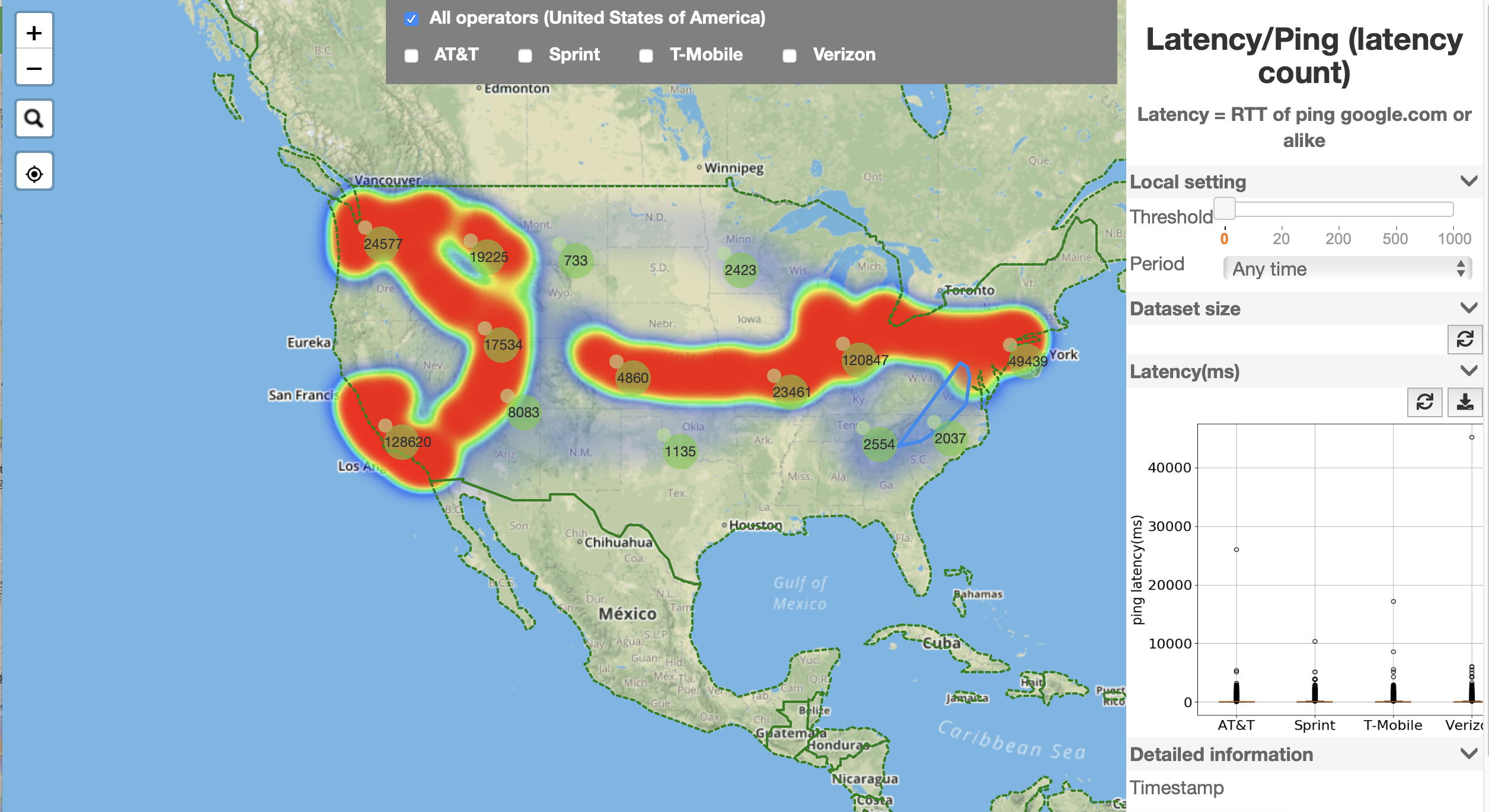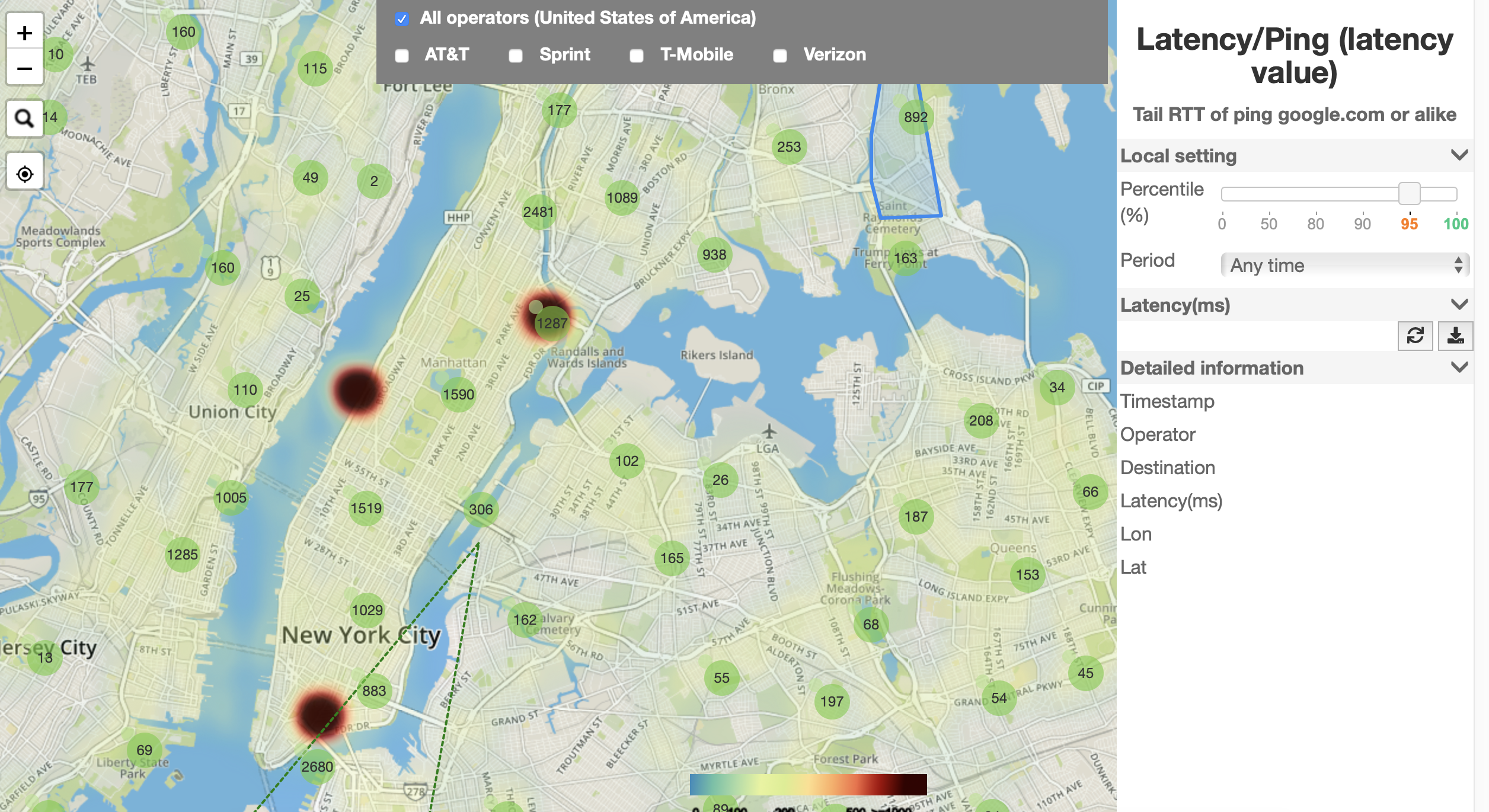Success Stories
MI-LAB is an open testbed for in-Phone mobile network experimentation, data collection and analytics for the community and by the community. MI-LAB allows and faciliates researchers to run experiments designed and developed out of their research needs at scale (extensible to global-scale), collect cellular-specific signaling data (including NAS/RRC control-plane protocol messages and L2/L1 signaling data) under designated contexts and perform mobile network analytics. It also faciliates researchers to share data collected, analytics codes and insight gained.
MMMap (Mobility Management Map)
MMMap is an online service to visualize data collected by one specific experimental task (MMLABv2 or MMLAB) which was distributed and run by the team led by Prof. Peng (Purdue University). Colleced data includes all signaling messages used for handoff (mobility management) and radio access connection setup, e2e performance data (like ping latency and failures), as well as context data for the experiemental settings and varying environments (e.g, GPS locations). These messages can be used to extract handoff configuration parameters per cell, handoff instances observed in the wild, and data performance (latency = RTT of ping google) on the go. MMMap holds the following desirable features.
- Open dataset as the community asset (in spirit of ImageNet).
- Big dataset which is still growing. As of September 30, 2019, the dataset was collected from 32 global carriers over 15 countries and regions (USA, Canada, Mexico, China, Taiwan (ROC), Hong Kong (PRC), India, South Korea, Singapore, France, Spain, Germany, Norway, Hungary, Egypt). It included 13.9 million latency samples, 1.5 million handoff instances, 2.3M serving cell configuration samples from 187K unique cells. The duration of data collection is more than 4,500 hours and the total distance was more than 350,000 km.
- Reproducible, extensible and easy to grow dataset. Everyone can contribute to data collection thanks to MI-LAB which makes large-scale experiment possible and fast.
- Dataset visualzation in real-time (within mintues upon data uploading).
More information for MMMap can be found at here .

Unique cells collected in the USA (2,401,306 samples and 154,750 cells as of Sep 30, 2019)

Handoff instances collected in the USA (1,495,150 instances as of Sep 30, 2019)

Latency (RTT of ping google.com) measured in the USA (14,320,983 samples as of Sep 30, 2019)

Latency (RTT of ping google.com) measured in New York, NY (as of Sep 30, 2019)
MISS: Unveiling the Missed 4.5G Performance in the Wild
This MISS project aims to study an important, yet unexplored problem in operational cellular networks: How close is the actual performance each mobile device gets in reality from what the device could have got at best? The performance gap is deemed as the missed performance because the device fails to achieve the feasible, higher performance over the same network infrastructure. The team led by Prof. Peng (Purdue University) have conducted extensive measurement to uncover, quantify, and understand such missed performance in the wild. Datasets:
- HotMobile'20 and its extension (July 2019 - Jan 2020, West Lafayett, IN) This is the dataset used for a HotMobile'20 paper of "Unveiling the Missed 4.5G Performance in the Wild". It is a city-scale measurement study over four top-tier US carriers (AT&T, Verizon, T-Mobile and Sprint) in the small city of West Lafayette, IN (6km x 6.7km). It consists of data collected in both static tests and driving tests for 796 hours and over 10,190 km (driving only).